So! Picking up where I left off last time… part 2 of Sylvester McCoy’s run on the series, spanning all of Season 25 and the first story of Season 26.
 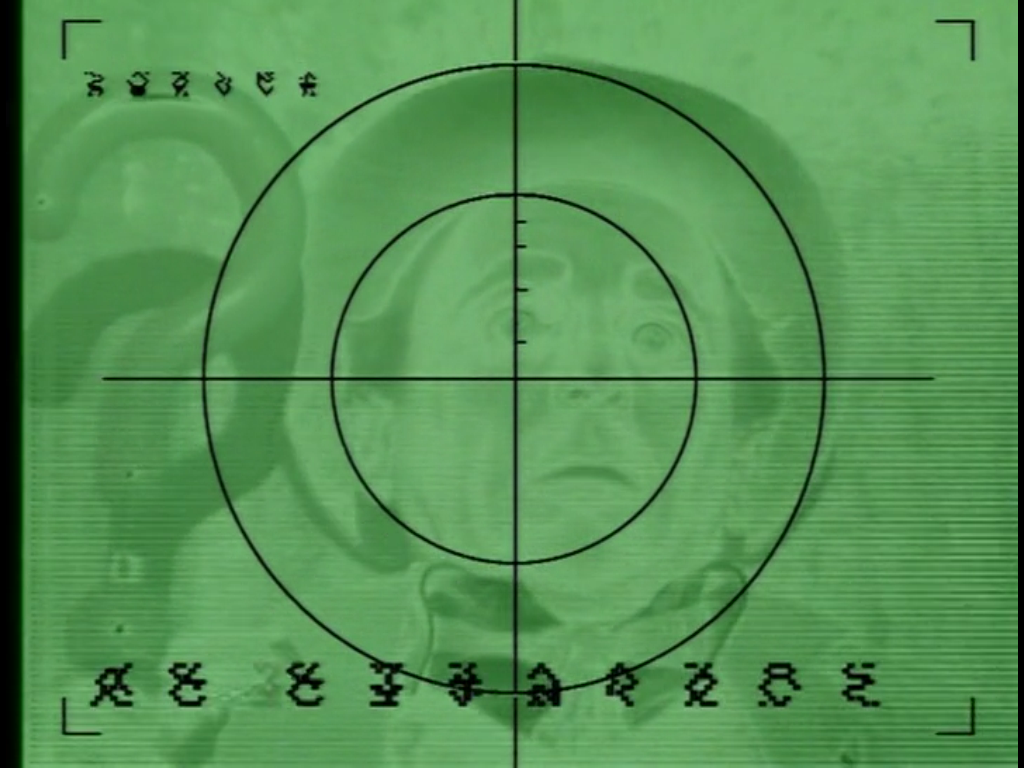
#152: Remembrance of the Daleks
Back in the day, the Daleks didn’t turn up every season (or almost every season), but were parceled out so they’d have a greater impact when they did. With this being the 25th season, the Daleks (and another major villain) were brought back for their one appearance in the McCoy era. It’s also easily one of the best stories. This is the first of two stories that Ben Aaronovitch contributed to the series, and I think it’s the better of his efforts. Set in late 1963, it’s a story that mirrors the Daleks’ belief that they are the superior race with the conflicts over race on Earth. It’s a smart script, one that picks up past elements of the Daleks story (most notably the civil war that began in their last appearance several years earlier, “Revelation of the Daleks”) but does so in a way that doesn’t leave behind anyone who hasn’t seen those stories.
This is also new companion Ace’s first story where it’s just her and the Doctor (after her introduction at the end of the previous season), and the dynamic is instantly more appealing than what we had with the 7th Doctor and Mel. It’s a story where it’s hard to imagine substituting Ace with any previous companion; she isn’t just headstrong and with a forceful personality, she’s someone who takes the fight to the Daleks. She’s the first formidable companion (in an action, fighting sense) since Leela a decade earlier, but instead of a knife or a poisonous thorn, she’s using high explosives and even a rocket launcher.
The Doctor himself is also portrayed differently than up until now, too. Having been given time to stop and plan out his time on the show (versus the scramble to just have something on the screen for Season 24), script editor Andrew Cartmel reworked the 7th Doctor into one who is more manipulative, a dark streak running beneath the clownish exterior. This could have been disastrous (and in one instance it is, but we’ll get to that shortly), but generally speaking it works well because Cartmel and the writers he chooses do so with a touch of subtlety. The Doctor’s motivations are always well intentioned and for the greater good, but for viewers up until this point, you can see where this ends up being a bit surprising. At any rate, “Remembrance of the Daleks” held up well on a re-watch. It moves at a good pace, it’s fun, and while some of the things that were new at the time are now old hat (and I’m not just talking about the Dalek that levitates up stairs), they’re still done with skill so that the surprise is gone but the quality remains.
“The Happiness Patrol” is one of those stories that I think befuddles a lot of viewers, but on the whole I like it. It’s got some structural problems, but there’s something about it that ultimately charms me. On a planet where last names are letters based on your rank in society, and where happiness is mandatory—if you aren’t happy the Happiness Patrol may end up executing you with their bright pink fun guns—the Doctor and Ace arrive to investigate the dark rumors of what’s going on with “route disappearances.”
Oh, let’s just cut to the chase. It’s about Margaret Thatcher. Planetary leader Helen A is a satire of Thatcher and a lot of her policies. Is it blatant? Certainly. But similar to “Paradise Towers” the previous season, “The Happiness Patrol” revels in being a black comedy, and to do that it ends up very in-your-face. Sure, the Kandyman (a huge robot made of sweets who executes people) looks ridiculous, but that’s sort of the point. He’s so over the top and cartoonish that it makes his sociopathic personality that much more of a clash with his exterior. This is a planet where being subtle has all but been outlawed, after all. Happy, happy, happy. You will all be like us. That level of conformity is focused on happiness, but you can also see other “you will conform” elements mixed in; a lot of viewers before me have pointed out the stomping down of LGBT’s rights and place in society being mirrored in this story, and it’s easy to see being an element in what Graeme Curry was thinking of when he wrote the script.
“The Happiness Patrol” is one of several stories in the McCoy era which is ultimately marred by its run time. A lot of material ends up on the cutting room floor, and while they’re mostly little character bits, it’s a real shame. Losing them means that we don’t get to hear about how Susan Q was demoted for owning illegal blues records, for instance; it makes her later decision to release Ace feel less out of nowhere. (Cutting it also means that even though she’s in all three episodes a great deal, we don’t learn her name until we see it on a poster at the end of episode 2. Oops.) The frustrating thing is that it’s also a story that has one too many subplots, in this case the indigenous “Pipe People” of Terra Alpha. Considering that the “worker drones” are also being oppressed by Terra Alpha’s government led by Helen A, I wish they’d just merged the two together. Get rid of the Pipe People (they’re really awful), swap in drones who have taken refuge inside the pipes, and you’ve suddenly streamlined the story.
Anyway, “The Happiness Patrol” isn’t perfect, but it’s fun. I like the actors, I like the sets, I even like the music. (The end of the penultimate scene with Helen A and Fifi, as the camera pans up, comes together with acting, directing, and music that I always wish that it ended right there.) Don’t let people warn you away. It may only be the 3rd best story of the season, but I’d cheerfully watch it over most stories from the previous several years. Good stuff.
Remember how I said this was the 25th season, and they were bringing back old villains as a result? “Silver Nemesis” is obligingly the other half of that statement, with the final return of the Cybermen in the original series. With the first episode even airing on the 25th anniversary date, Kevin Clarke comes up with a story involving a ship in a cometary orbit around Earth that’s about to come crashing down after 350 years, and a payload consisting of a statue that once fully assembled “has the power over life and death.”
Unfortunately, it’s pretty awful. There’s no sugarcoating that “Silver Nemesis” is the worst story of the season, and avoids being the worst McCoy story only because the previous season exists. This is a story where the Cybermen are bumbling oafs who chat amongst themselves, can’t grab a teenage girl if their life depends on it, and whose previous vulnerability to gold (which if it entered their exhaust ports would clog their respiratory systems) has now turned into a lethal allergy if it so much as touches them. Sadly, this is by no means the only problem with the story, but rather just one of the symptoms.
“Silver Nemesis” does almost everything wrong on the writing level. It’s got a villain (Lady Peinforte) who cackles about knowing the Doctor’s secrets, with no subtlety whatsoever. It’s a follow-up to moments in “Remembrance of the Daleks,” but here it’s fired at the reader with the force of a cannon. It’s poor writing, and that’s before you get to long interludes of Lady Peinforte talking to random skinheads, or hitching a ride from an American with an awful southern accent. And the less said about the Nazis who return from hiding in Brazil to try and claim the Nemesis statue, the better. Instead I’ll just add that “Silver Nemesis” suffers even more when you realize that the overall plot is ultimately exactly the same as “Remembrance of the Daleks,” which concluded only a month earlier. Bad dialogue, hideous amounts of padding, stupid characters, and a poor copy of a plot that was handled better earlier… what’s to like?
Well, shockingly, Chris Clough’s direction. In the past he was a very workman-like director, but here he turns out some beautifully composed shots. When the Doctor and Ace are taking cover from the sharpshooters in the first episode, it’s a great look, one that I still remembered 25 years later. “Silver Nemesis” is full of these, and in the end it’s the one saving grace. It’s a coat of fresh paint on a crumbling hulk, but boy does that paint look good.
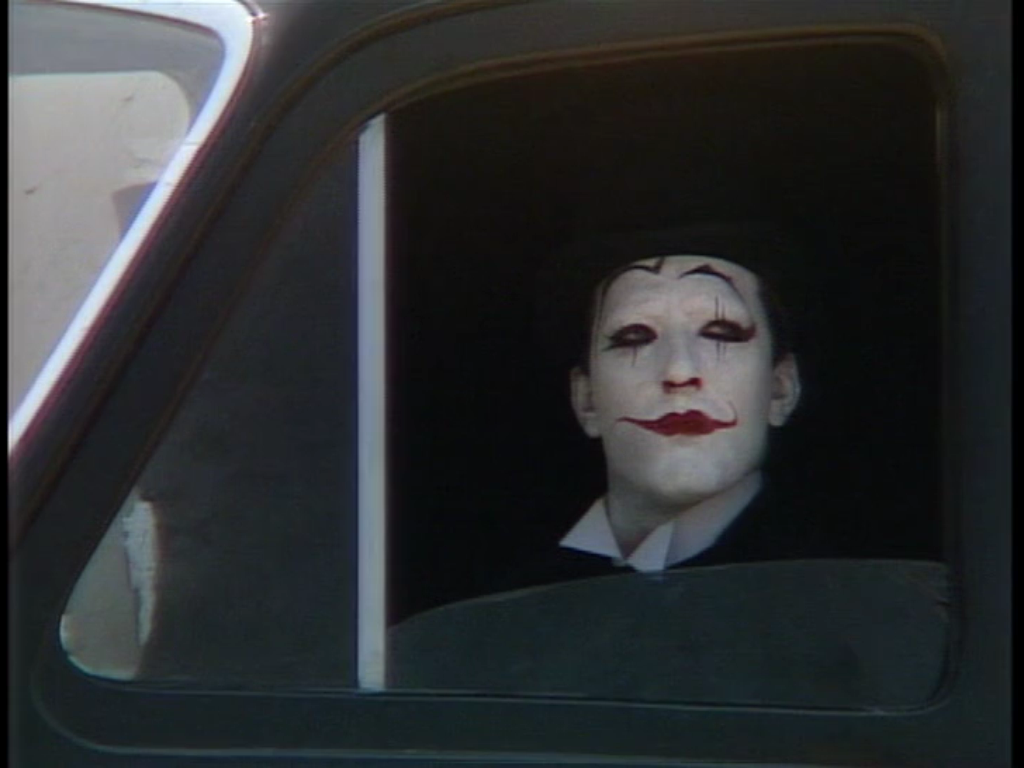
#155: The Greatest Show in the Galaxy
At its core, “The Greatest Show in the Galaxy” sounds pretty simple: the Doctor and Ace go to a sinister circus where dark powers are at its core. What we actually get, though? A story that I’m willing to claim as my second-favorite McCoy story. First and foremost, I love that this is a show where almost all of the villains aren’t super-evil. With one exception (the Chief Clown), all the others are dangerous, but they’re more self-absorbed than anything else. Some are fighting for survival, others just can’t be bothered to care about those that they consider lesser. Which is a roundabout way of saying, I suppose, that “Greatest Show” is full of complex, interesting characters. Stephen Wyatt (who wrote “Paradise Towers”) took a lot of time and care in the supporting cast of his story, and it shows. (Even the character who helps them all out near the end isn’t quite as good a person as you might think, when you start to contemplate how this mess all began in the first place.)
“Greatest Show” is also a story that looks quite unlike anything else out there, thanks to a happy accident involving asbestos removal in the studios where all of the circus scenes were to be shot. Faced with having to scrap production entirely, the show instead erected an actual tent in a parking lot and shot all of the circus scenes there. The end result is a sudden, surprising amount of realism in the overall visuals of the show. It sounds silly, but there’s something about how the fabric tent walls are silently quivering in the wind that adds a layer of realism that a studio-bound production never would have brought across.
If that’s all there was to “Greatest Show” it would already be a victory, but the story’s also a massive allegory… for Doctor Who itself, and the television industry. From the fan who talks about how he knows it was better in the old days, to the audience ratings that result in destruction to whomever’s in the ring if they drop below a certain point, it’s all a loving homage to the show that it’s part of.
Two quick points, because I could write an entire essay just about this story and I really am trying to keep this brief. First, the Chief Clown played by Ian Reddington is wonderfully creepy. As in, I never understood why people were creeped out by clowns until I saw “Greatest Show.” His first appearance, in the front seat of a hearse where everything is dark save for his white face-paint? Brrr. (And also a great shot from director Alan Wareing.) Reddington makes the Chief Clown terrifying, and he deserves a lot of credit for that. And second, this is the first of three stories with a soundtrack by Mark Ayres. He’s good here (and a big improvement over regular musician Keff McCulloch who scored most of the McCoy era), and he just gets better. A strong debut for him. Anyway, if you have never seen “Greatest Show” try and fix that. Most of Season 26 is fantastic—we’re talking episodes that kick some serious butt—and it’s notable that “Greatest Show” beats out all but one of those stories. And speaking of Season 26…
In my previous post, I mentioned that there were two McCoy stories that I hadn’t watched since first seeing them back in the ’80s. “Battlefield” is the second of those two stories, and that was because of how disappointed I was by it. On paper it all sounded great: another story written by Ben Aaronovitch, a new UNIT team introduced, the return of the Brigadier for one final hurrah, and a war from another universe involving the remnants of Camelot. Should be great, right?
Well, it helps knowing now what I didn’t know then: namely, that while “Battlefield” is four parts long, Aaronovitch’s original outline was for a three part story. And when asked to add on another 25 minutes, Aaronovitch just tried to spread everything out a bit, rather than go back and rework his outline to have another 33% worth of plot. With that piece of information, the failings of “Battlefield” suddenly all snap into place.
It’s not a bad story—there are a lot of great ideas in it—but rather it never does everything justice. There’s a huge amount of filler in this story, or sections that just drag. Every now and then, though, there are little wonderful moments. Morgaine rebuking Mordred once she finds the war memorial. Morgaine’s healing the barkeep in one moment and destroying a UNIT soldier in the next. The final confrontation with Morgaine when she learns the truth about King Arthur. Come to think of it, Jean Marsh playing Morgaine in just about any scene is fantastic. But it’s hard to ignore that the Brigadier has almost nothing to do for most of this story (at the halfway point he’s only just gotten out of that stupid helicopter), the long stretches of characters sitting around, or how awful the “Doctor attacked by snake that seems to just nudge him off his feet” scene is. It’s a bad opener to the season, although I’d still place it above stories like “Silver Nemesis,” “Time and the Rani,” or “Delta and the Bannermen.” And I really wish there was a way to go back and transform it into the originally plotted three-parter, because I think that would have been fantastic. But boy, does this drag.
Next time: The final three stories of Season 26 (which form an unofficial little trilogy), plus the McGann television movie. Honest.
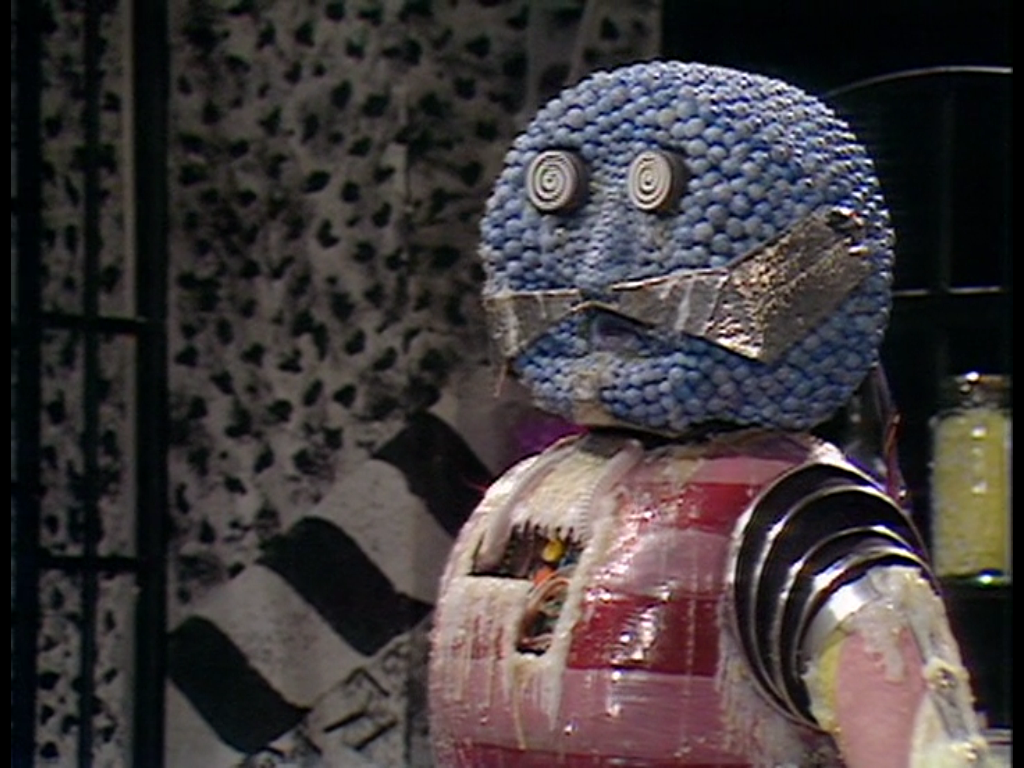
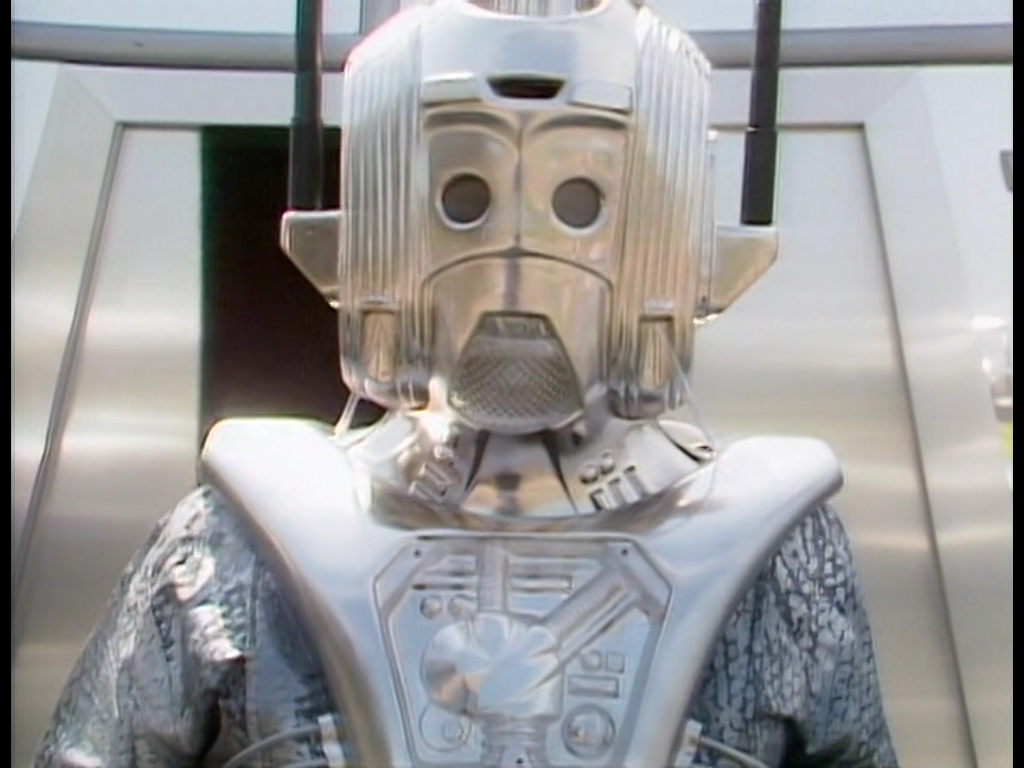
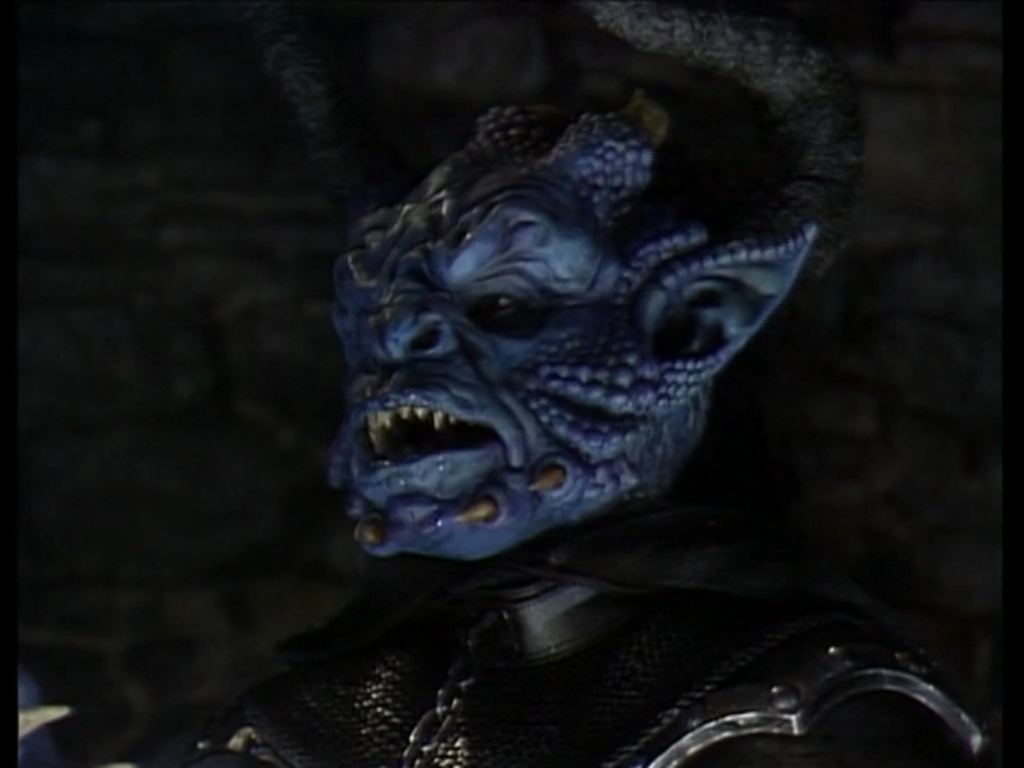
#DoctorWho 50 Years of Doctor Who: Sylvester McCoy (part 2) | Greg McElhatton http://t.co/y2zCK0x7wH
Hiya Greg McElhatton, enjoying reading this (and others too)? Next time we see each other, I would like to hear about your decision to attend Wayne State. I am a LIS graduate, myself 🙂
Doug Joubert liked this on Facebook.
Thanks Doug! Had no idea you were an LIS graduate too; every time I turn around I think I discover someone else is, too. 🙂 We will definitely have to chat about it!
Tim Tucker liked this on Facebook.
Melissa Lynn liked this on Facebook.
Jacob G Corbin liked this on Facebook.
i love that you’re watching all of sylvester. can’t wait to find out if we agree what the “disastrous” manipulative moment is. this go round, the transition from dragonfire to remembrance was stunning. suddenly there are so many good stories it’s hard to pick a favorite from this era. remembrance is such a steady piece of work (and one of the things i noticed this time was how great jasmine breaks was) but then the happiness patrol comes along with the skewering of thatcher, then you have the tour de force of greatest show in the galaxy. “i know it’s not as good as it used to be but i’m still terribly interested.” 11/10 brilliant.
Alas, wasn’t clear: the disastrous manipulative moment is Silver Nemesis, which removes all subtlety whatsoever. For all the “Cartmel Masterplan” stories it’s the one that I feel falls down on its face.
aha of course. then i will wait to see what, if anything, you say about the moment i had in mind.
Matt Chayt liked this on Facebook.
Matt Chayt liked this on Facebook.
Jacob G Corbin liked this on Facebook.
Melissa Lynn liked this on Facebook.
Tim Tucker liked this on Facebook.
Doug Joubert liked this on Facebook.